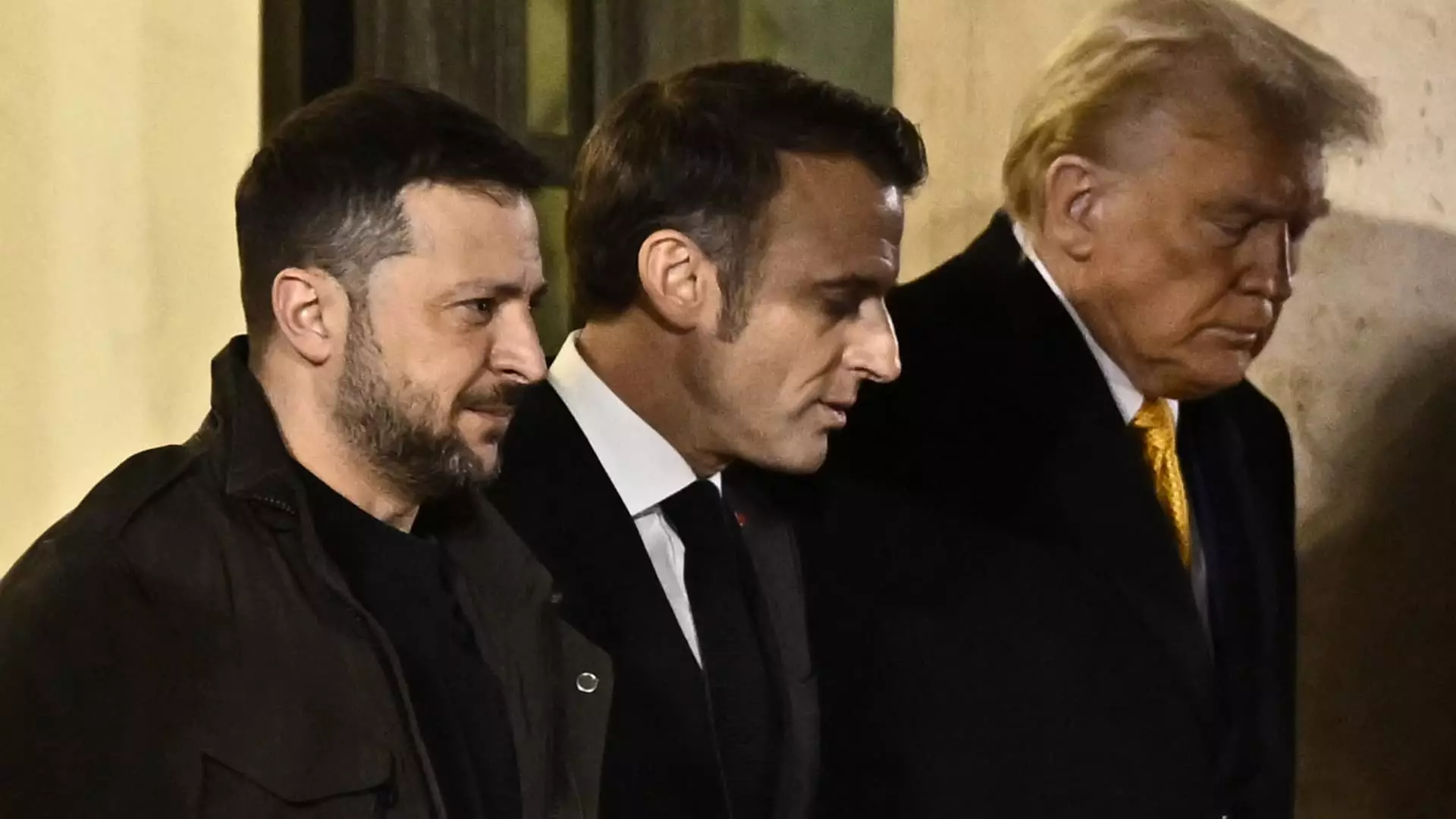The ongoing conflict between Russia and Ukraine has drawn in multiple international actors, with Europe scrambling to assert its role in peace talks that have primarily unfolded under the auspices of the United States. In light of recent developments, European leaders are reinforcing their commitment to playing an integral part in negotiations aimed at bringing an end to a war that has persisted for nearly three years. However, the unfolding scenario presents significant challenges as European statesmen gather to address fears of being sidelined in discussions of crucial importance to the continent.
In a bid to consolidate European representation in the peace process, French President Emmanuel Macron convened an emergency summit in Paris. The gathering reflects unease stemming from remarks made at the Munich Security Conference, where discussions indicated that Brussels might not hold a significant position in upcoming negotiations. The meeting brings together a coalition of European leaders, including Germany’s Chancellor Olaf Scholz and Poland’s Prime Minister Donald Tusk, who clearly recognize the urgency of including European perspectives in any settlement.
As potential talks between U.S. officials and Russian representatives ramp up this week in Saudi Arabia, the situation complicates further. A significant sticking point arises from comments made by Ukrainian President Volodymyr Zelenskyy, who announced that Ukraine would not participate in initial discussions between the U.S. and Russia, underscoring Ukraine’s demand for inclusion in any talks concerning its future.
It is particularly troubling for European leaders that the U.S. may proceed with discussions that exclude them. U.S. State Department representatives indicated there would be no “large group discussion,” raising questions about the inclusiveness and legitimacy of the negotiations. This sentiment is echoed by Russian Foreign Minister Sergei Lavrov, who expressed skepticism about the role European nations might play in talks about Ukraine’s fate.
The undercurrent of these developments is a sense of urgency for Europe to capitalize on its unique stake in the resolution of the conflict. Kaja Kallas, the European Union’s foreign policy chief, underscored this necessity, asserting that a durable peace agreement would be unattainable without the participation of both Ukrainians and Europeans. The implication is clear: Europe’s absence could lead to a one-sided contract that would ultimately be unfeasible and insufficient for long-term regional stability.
Simultaneously, the U.S. administration is soliciting European allies to specify their military capabilities that could support Ukraine as part of broader security guarantees. This emphasis on troop contributions brings to the fore long-standing tensions regarding defense spending within NATO. The commitment—voiced by U.K. Prime Minister Keir Starmer—suggests that Britain might even consider deploying military personnel if necessary to bolster European security, a potential flashpoint underscoring better coordination between transatlantic allies.
There is a shared understanding among European leaders that any peace settlement must facilitate a united front against Russian aggression. Starmer, in particular, highlighted the need for enhanced defense spending, a request that has long drawn President Trump’s criticism. The resounding question remains: how will European nations reassess their military commitments to ensure they have a say in negotiations that inevitably impact their futures?
With Brussels’s influence hanging in the balance, today’s summit may serve as a pivotal moment for European leaders to galvanize collective action. They need to present a coherent strategy to Washington that emphasizes the need for European involvement in mediating peace negotiations. Moreover, European leaders must mobilize public opinion and parliamentary support to ensure backing for potential troop deployments or increased defense spending.
The Russia-Ukraine conflict highlights a crucial moment for Europe’s geopolitical agency as it contends to reclaim its role in a process largely dominated by U.S. outputs. The end-goal revolves around furnishing Ukraine with security assurances, alongside a definitive resolution that considers the voices and needs of all stakeholders. As these contentious negotiations unfold, Europe’s ability to act cohesively and authoritatively will be an essential factor in determining the region’s future stability.

